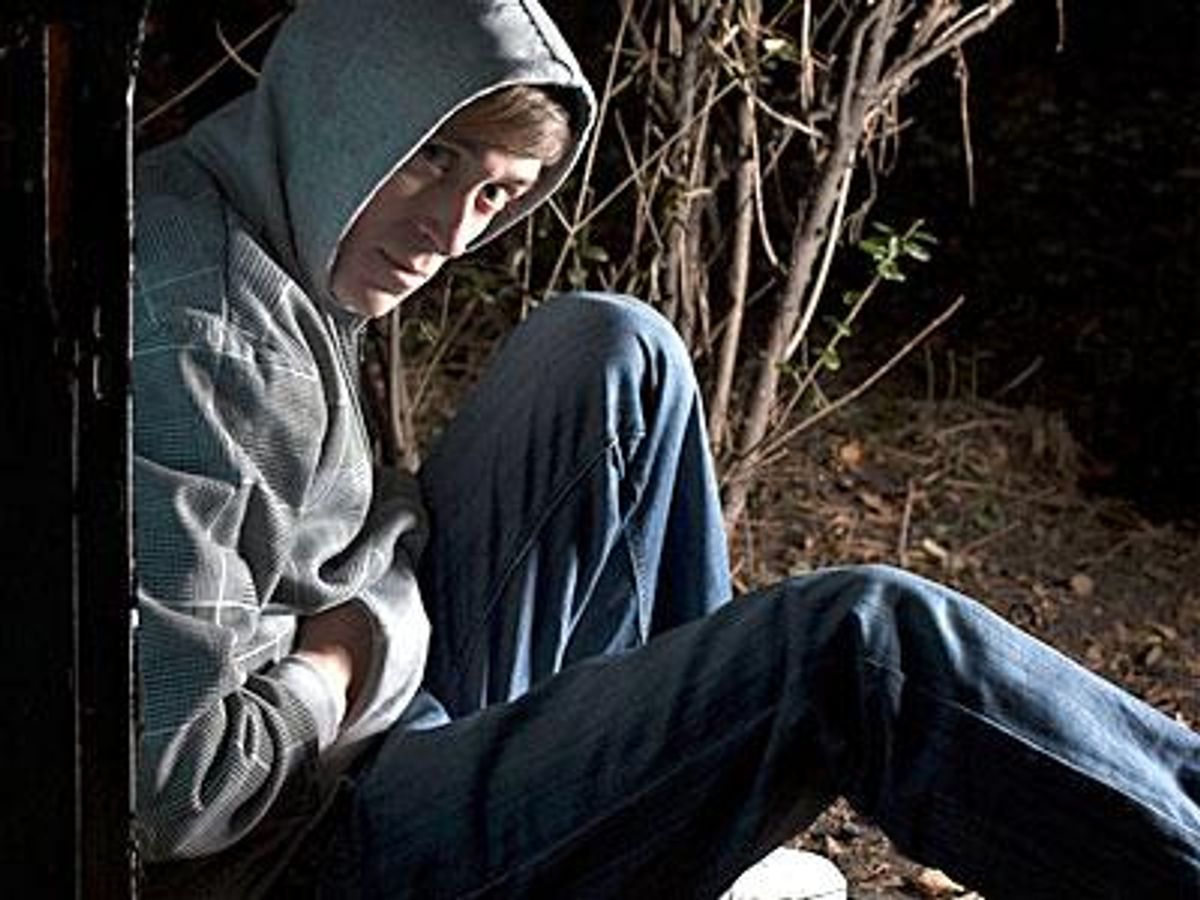I first stepped into my local LGBT youth assistance agency, Time Out Youth, in the fall of 2012. At the time, the non-profit organization had seen a 419 percent increase in homeless LGBT young people in need of temporary shelter in Charlotte, N.C. I was there to write a story about why this was happening.
I talked with one 23-year-old, partially deaf, transgender man who told me how a staff member found him sleeping in his car and helped him find a place to stay through their host home program. He had to temporarily stay at the Vanlandingham Estate near the TOY office because there is no emergency shelter equipped to fairly accomodate LGBT people in Charlotte.
It's not even just a problem in my hometown. There are barely any emergency LGBT shelter options in the entire Bible Belt. Per CenterLink, an online database of LGBT centers across the United States, only North Carolina, Georgia, Oklahoma and Tennessee provide some kind of emergency services for LGBT youth, even if it is not in the form of a stand-alone shelter. Mississippi, Louisiana and Kentucky do not even have LGBT centers.
There are no local statistics about the number of homeless LGBT youth in the Carolinas. Typically, surveyors do not ask the sexual orientation of homeless populations in North Carolina. Homeless LGBT youth, which makes up 20-40 percent of the general homeless population in the United States, are still an invisible population in my state. If you consider that San Francisco just started collecting demographic information about the sexual orientation of homeless people for the first time this year, who knows when North Carolina will start compiling that data?
There are a handful of options and partnerships in Charlotte for the LGBT youth who need help, although they are not always ideal. TOY offers temporary home services in the form of a host home program for young people over 18. Volunteers can host a young person based on a set criteria the youth must meet to enter and stay in the program. If there is no shelter space available, those between the ages of 11 and 20, can go to The Relatives, a shelter for all homeless youth with strong ties to TOY. If that is not available, local 24-hour French Bakery Amelie's buys the youth a coffee, drops them off at 9 p.m., and picks them up at 8 a.m. the next morning to go back to the TOY offices to figure out the next step.
Some youth congregate at the Men's Shelter of Charlotte. TOY executive director Rodney Tucker says LGBT youth band together there to avoid physical and verbal harassment in the shelter. For transgender individuals of color, particularly those whose legal gender markers are male but present as female, the Men's Shelter is one of the few emergency housing options. The National Transgender Discrimination Survey, put together by the National Black Justice Coalition and National Center for Transgender Equality and the National Gay and Lesbian Task Force, found that black transgender people, especially those whose gender marker is male when they present as female, have difficult experiences at emergency shelters. From the homeless individuals that tried to access the shelters, 40 percent were denied access altogether, 61 percent experienced harassment and 32 percent were physical assaulted at the shelter.
In the end, wouldn't it be better if there were more stand-alone shelters to help the LGBT young people who simply need to feel welcomed and safe?
One of the rare stand-alone shelters for homeless LGBT people in the South is Lost-n-Found. Rick Westbrook founded it two years ago. To put it in context, a 2012 report estimated there were 900 LGBT homeless youth in Atlanta, but since the shelter's opening, he's helped 253 LGBT young people.
Westbrook's community-funded shelter houses six LGBT young people at one time. He says 50 percent of the LGBT people who come through the doors are lesbians and lesbian couples. Sixty percent of the homeless LGBT people he serves are African-American. He attributes the high number of African-American LGBT youth to the pressure in conservative churches to remain closeted.
A pending federal bill, if enacted, could add LGBT protections to the Reconnecting Homeless Youth Act. Representatives Mark Pocan and Gwen Moore, Wisconsin Democrats, introduced this bill to Congress on August 1. It would require all shelters that receive federal grants to obtain competency skills on how to serve LGBT youth and for the federal government to gather data about homeless LGBT youth. The bill has been waiting for consideration by a House committee since September. While it's a great stride, it would not help Lost-n-Found and Time Out Youth, and other LGBT emergency shelter services or housing programs, that don't receive federal funding.
I deeply support the addition of more emergency LGBT shelter services in the Bible Belt. I now volunteer at TOY, where I teach creative writing classes to the youth. I want to be there for them in any way I can until the day we get better emergency services in our state and surrounding area. I was lucky to be born to open-minded, loving parents who accepted me. They fed, clothed and housed me so I could graduate from college and start a career. I want the same human dignity for every young member of our community.
JOANNE SPATARO is a writer based in North Carolina.


















































































